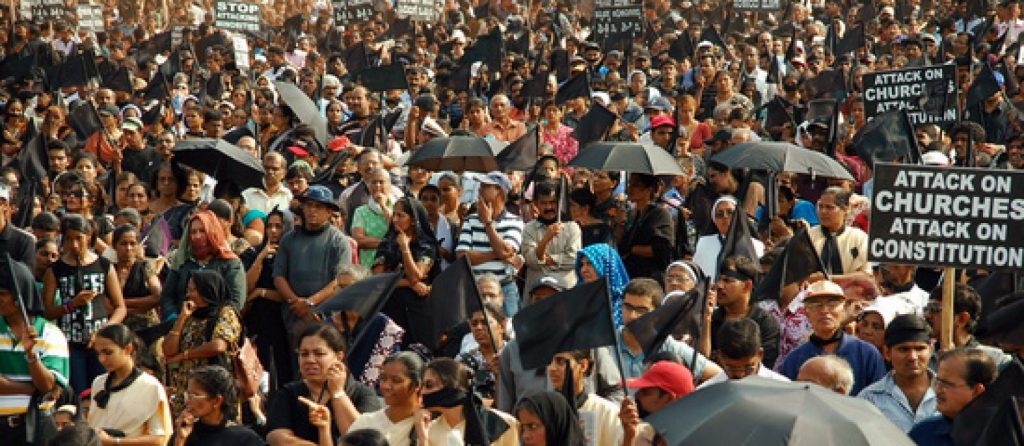Christianity and Politics Conference

Christianity and Politics Conference
University of Turku
22–23 November 2018
The relationship between religion and politics is extremely complex and delicate. Over time the boundaries between the two have been drawn in various ways. Especially in the pre-modern era religion and politics belonged to the same processes, both at theoretical and practical levels. They were tightly intertwined: in medieval studies separating them as autonomous phenomena is often as difficult as it is arbitrary. The two are now easily considered separate entities in Western societies. Religion is often understood as a clearly bounded phenomenon affecting politics either directly or indirectly. However, religion is also approached as something that can be used as a political tool. Both approaches tend to simplify the complex relationship between religion and politics. ‘Religion’ and ‘politics’ are not bounded phenomena and they should not be seen as existing as such in the world. Whereas politics may refer to public decision-making processes that are easily recognised as something we call politics, it may equally refer to the sphere of the private and ordinary. Likewise, the term religion designates not only religious action related to churches and religious institutions but is also something flexible and fluid that easily evades attempts to define it. Various phenomena can therefore be termed political and religious, but they should not be considered such but named and categorised as such in particular contexts. Furthermore, despite the secularisation thesis, religious institutions and actors in the West are seeking new roles in the field of politics. Although religion in the US has for long been an integral part of the political scene, in Europe the situation has been more variable. In many predominantly Catholic countries religion has been very visibly present in politics, whereas in Protestant countries it has often rarely been mentioned and kept silent about, not raised in the political arena. Even when obvious, as for instance in relation to historically grounded freedom of religion acts, Christianity’s role in influencing politics is under-recognised and invisible. Presently, however, Christian actors are again more visible in politics across the denominational field. The media plays an important role in reshaping the relationship between Christianity and politics in the West.
Christianity and Politics zooms in on Christianity with a critical focus on the examination of the relationship between Christianity and politics in the West. Under scrutiny will be the manifold ways in which Christianity and politics have been and are intertwined and exist in relation to one another, both in the past and in the contemporary world. How are Christianity and politics defined and delineated in relation to one another? How has the demarcation between Catholics, Orthodox Christians, and Protestants affected political culture in different areas over time? What are political Christianity and Christian politics, how are they visible in western societies, and how do they influence them? How was the unity of the political and religious realms manifested in the Middle Ages and what mark has this left on our societies? How and why did the European and American ways of conceiving the relationship between religion and politics become so different? In what kinds of non-institutional and often invisible forms is Christianity present in the field of politics? How is research on these topics itself political and to what extent should it be?
The conference brings together researchers from different disciplinary backgrounds to study the relationship between Christianity and politics. We invite contributions from a wide disciplinary range examining the relationship between Christianity and politics from antiquity to the Middle Ages and the present world. Possible topics to be studied include, but are not restricted to, the following:
- Defining the fields of Christianity/religion and politics
- How Christianity and politics are defined and the impact of these definitions on politics and Christian cultures
- Political Christianity and Christian politics
- The eclipsing and silencing of Christianity in politics
- Christianity as civil or state religion
- The role of Christianity in nationalism and neoliberalism
- The role of Christian values in the Western political arena
- Inter-denominational relations and their effects on politics
- Differences between Europe and the rest of the Western world
- Methods for critical study of Christianity and politics
- The political nature of the study of Christianity and politics
Keynote speakers in the conference are:
Dr. Timothy Fitzgerald – The Centre for Critical Research on Religion.
Dr. Saara Särmä – Finnish National Defence University
Dr. Sylvain Piron – L’École des hautes études en sciences sociales (EHESS)
The deadline for submission of proposals for open panels (max. 500 words) is 12 March. Panels will be approved by 18 March.
The submission of individual paper abstracts opens on 20 March. The deadline for submission of individual paper abstracts (max. 250 words) is 15 April.
Submission of panel proposals and individual paper abstracts should be made through the conference webpage at christianityconf.utu.fi. Panel chairs will accept or reject individual paper abstracts submitted to their panel. If rejected, abstracts may still be accepted as individual papers by the conference organisers.
Conference fee is 50 € (does not include Conference Dinner).
The conference is organised by the Centre for the Study of Christian Cultures, University of Turku
